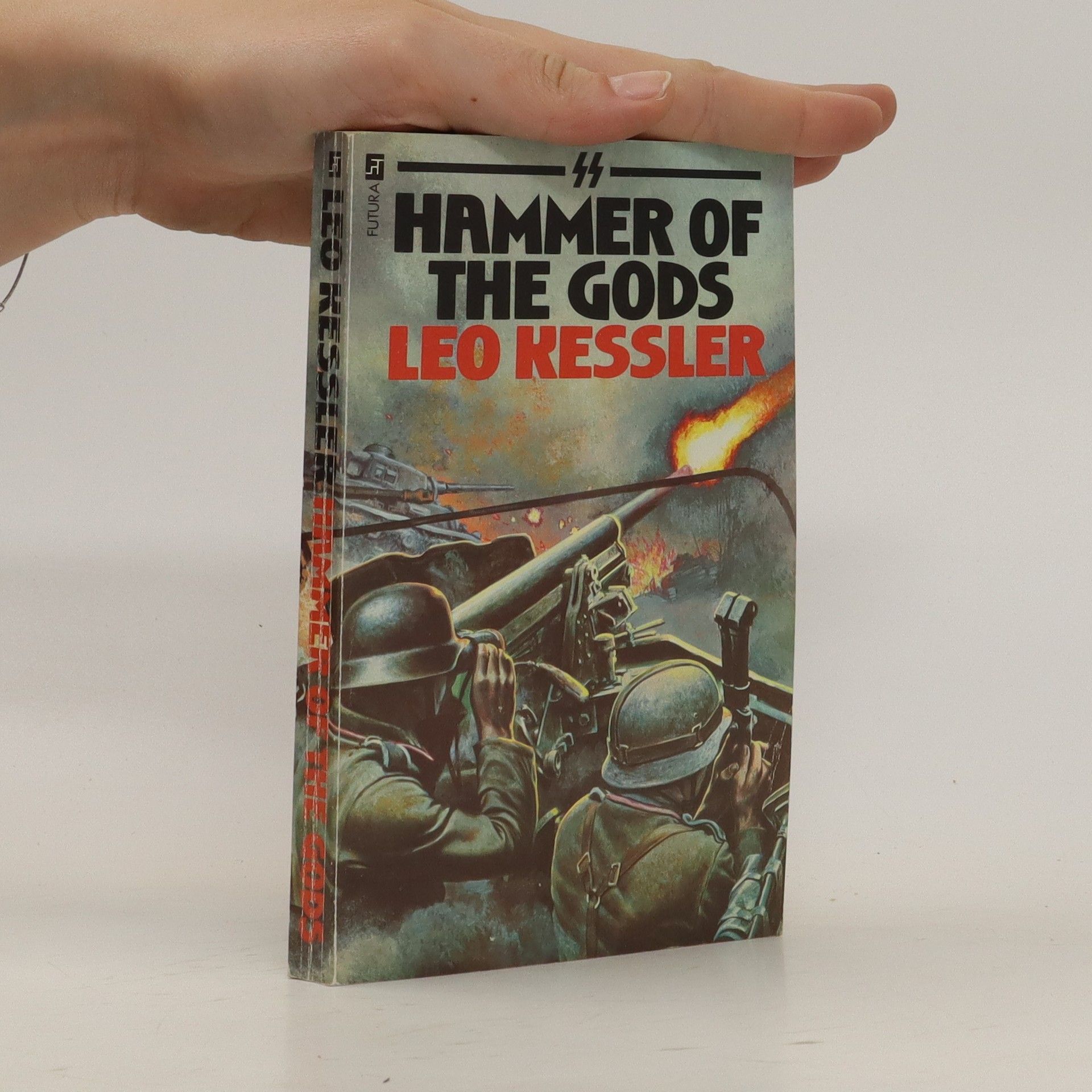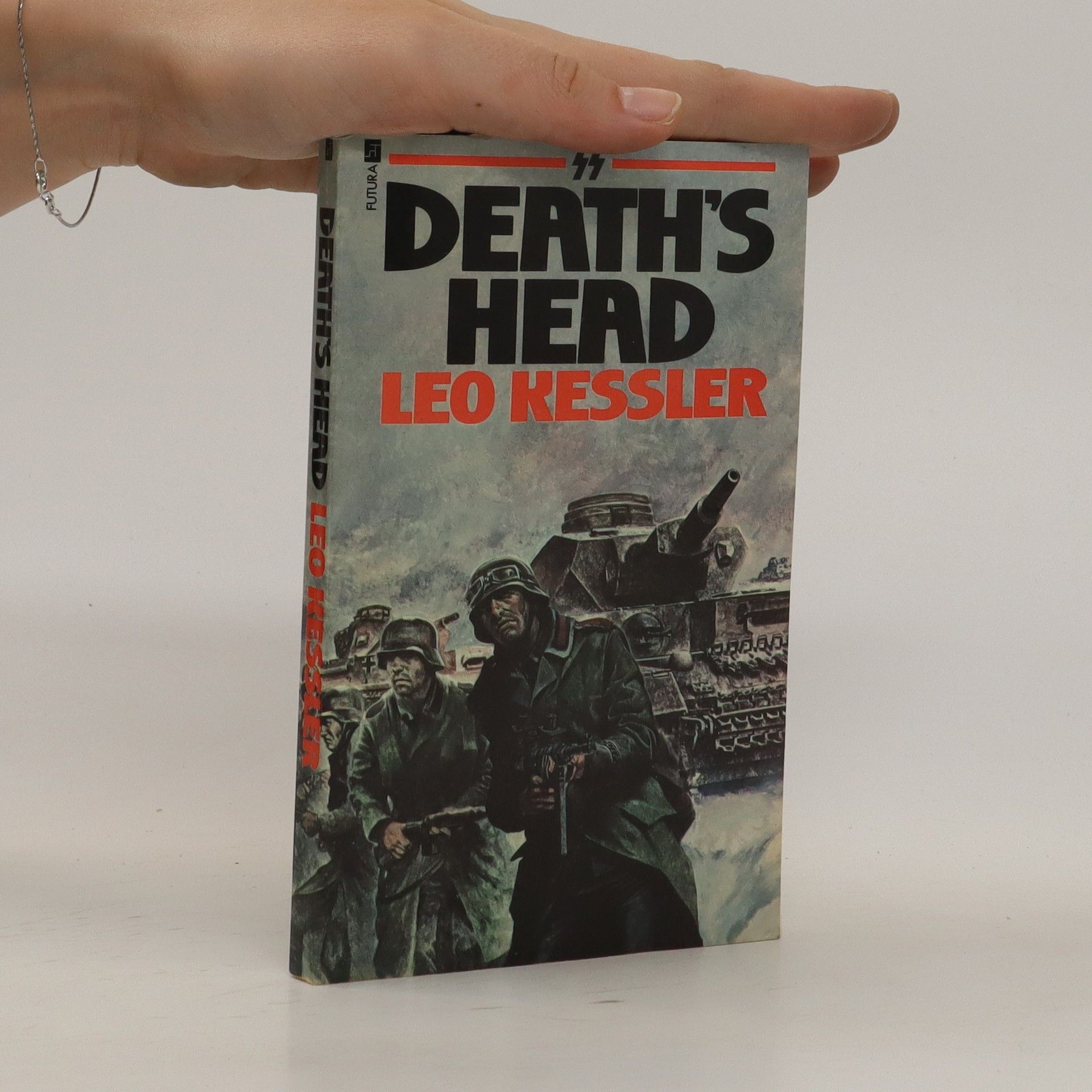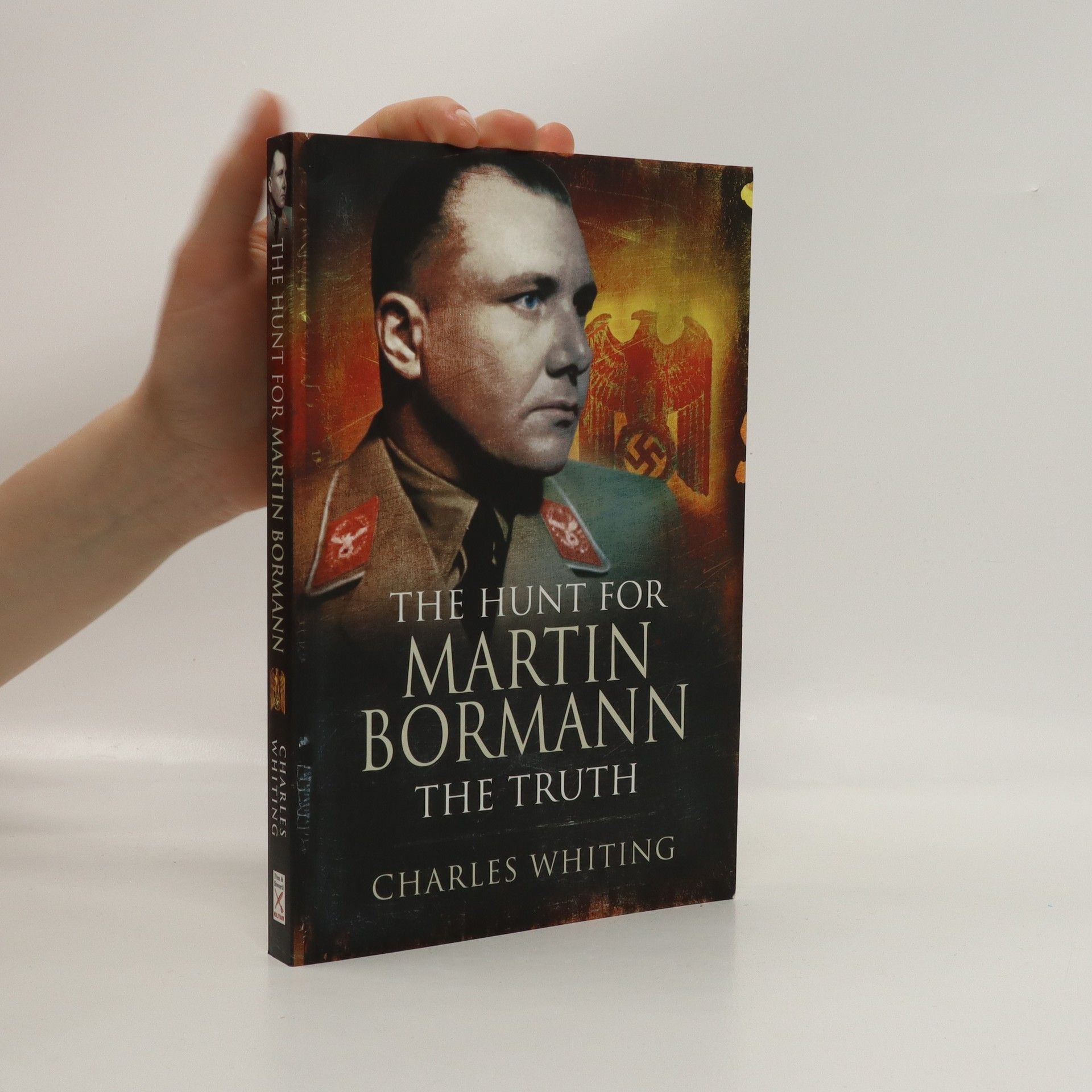"SS Assault Regiment Wotan was training and recuperating after its grueling struggle in Russia. None of those men straining up the glassy slope under the eyes of their commander, Colonel Horst Geier, guessed that already they had been singled out for a new mission ... German High Command knew that the British would launch an attack on Dieppe, and had realised that there was only one regiment that could be trusted to halt them in time and defend the vital coastal battery: the soldiers of Wotan." -- Back cover
Charles Whiting Libri
Un prolifico autore britannico, rinomato per le sue estese storie militari e la sua narrativa di finzione, Whiting attinse profondamente dalle proprie esperienze di sergente durante la Seconda Guerra Mondiale. La sua scrittura offre una rappresentazione autentica e vivida del conflitto, dettagliando meticolosamente le realtà della guerra e il suo impatto psicologico. Che si addentrasse in resoconti fattuali o creasse narrazioni avvincenti, Whiting possedeva un'abilità unica nell'immergere i lettori nell'atmosfera carica della battaglia. La sua eredità risiede nella sua avvincente esplorazione della vita e della storia militare.







In the grey September of 1944, colonel von Dodenburg's SS battle group Wotan became the Fuhrer's Fire Brigade, the crack unit of the German Wehrmacht, to be thrown into any battle as a last desperate measure to redress the balance. As the Allied armies closed in on Germany's holy city of Aachen, even the most optimistic said that Hitler's war was lost. Only Colonel von Dodenburg's black uniformed troopers, with their dreaded silver death's head badge, were convinced that they could still save the day.
An active approach to Shakespeare in the classroom.
The Germans toughened themselves for Nazism, but then suffered greatly in the bombed-out ruins of their cities
Obedience to the Führer. Obedience to the death. Hitler's elite SS bodyguards prided themselves on doing whatever it ook, even if death was the price. They called themselves the "old hares", and they left a trail of terror across Europe. Of the 30,000 soldiers who signed up, only thirty would survive the war. Some perished in the abortive push on Normandy in 1944, directed by the Führer. Others suffered gruesome deaths at the hands of the Russians. In a chilling account of the final year of this crack squad, bestseller Charles Whiting chronicles their bloody demise, which culminated in humiliation at the Battle of the Bulge. This is a gripping history, taking us deep into one of the most terrifying and cult-like units of the Second World War. It shows just how far the Nazis were willing to go; and what was needed to stop them
The hunt for Martin Bormann : the truth
- 222pagine
- 8 ore di lettura
On the night of May 1, 1945 Martin Bormann, head of the Nazi Party Chancellery and private secretary to Adolf Hitler, fled Fuhrer's bunker into the ruins of Berlin. This book examines over 50 years of rumors, claims and counterclaims to uncover the real fate of one of the most hunted men of the twentieth century.



